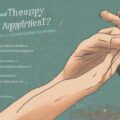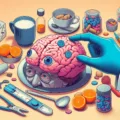Understanding PTSD
Post-traumatic stress disorder (PTSD) is a complex condition that can develop after experiencing traumatic events. Although distressing, there are effective treatments available that can help manage symptoms.
Therapy as an Effective Treatment
Therapy often plays a key role in PTSD recovery. Cognitive behavioral therapy helps patients process traumatic memories and manage troublesome thoughts. Group therapy allows for sharing experiences and mutual support. Therapies should be tailored to meet individual needs.
Medications That Can Help
Certain medications may be used alongside therapy. Antidepressants can help relieve depressive symptoms. Anti-anxiety drugs provide short-term relief. Sleep medications aid those struggling with nightmares and insomnia. Medications should be carefully monitored by medical professionals.
Alternative and Complementary Approaches
Some find mind-body practices like meditation, yoga, art therapy, or animal therapy helpful in managing PTSD symptoms. Peer support groups also empower individuals to share their stories and feel less alone.
Creating a Support System
Support from loved ones is vital when recovering from PTSD. Family and friends can help motivate individuals to attend appointments, provide empathy, and monitor their overall wellbeing. A strong support system makes healing feel more possible.
Living Hope
While PTSD is complex, there are many effective treatment options available. With compassionate professional help, determination and support from loved ones, healing is absolutely possible.
FAQ
What medications help with PTSD?
Antidepressants like Zoloft, Paxil and Effexor may help relieve PTSD symptoms. Anti-anxiety medications and sleeping pills may also provide relief in some cases.
What kind of therapy is best for PTSD?
Cognitive behavioral therapy and exposure therapy are considered among the most effective for PTSD. Group therapy and family therapy can also be very helpful.
What are some self-care tips for PTSD?
Self-care tips can include relaxation practices like yoga, meditation and deep breathing, sticking to routines, limiting media exposure, reaching out for support, and focusing on positivity and gratitude.
Can PTSD go away on its own?
It is possible for symptoms to resolve over time, but PTSD generally does not go away completely without proactive treatment through medication, therapy or other interventions.
What helps PTSD naturally?
Some natural options that may help manage PTSD symptoms include exercise, spending time outdoors, keeping a journal, creative arts like art or music therapy, spending time with pets or emotional support animals, and certain herbal remedies.









